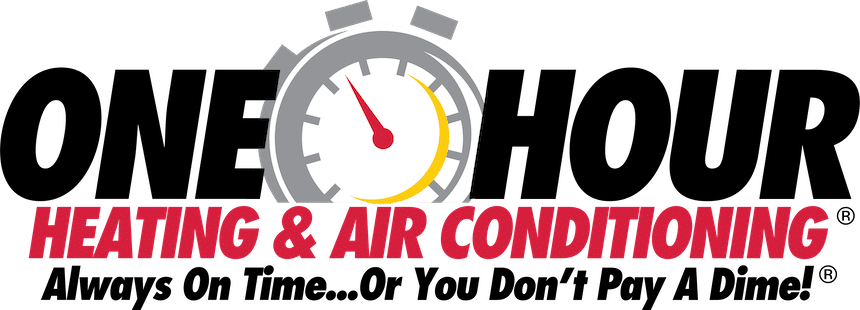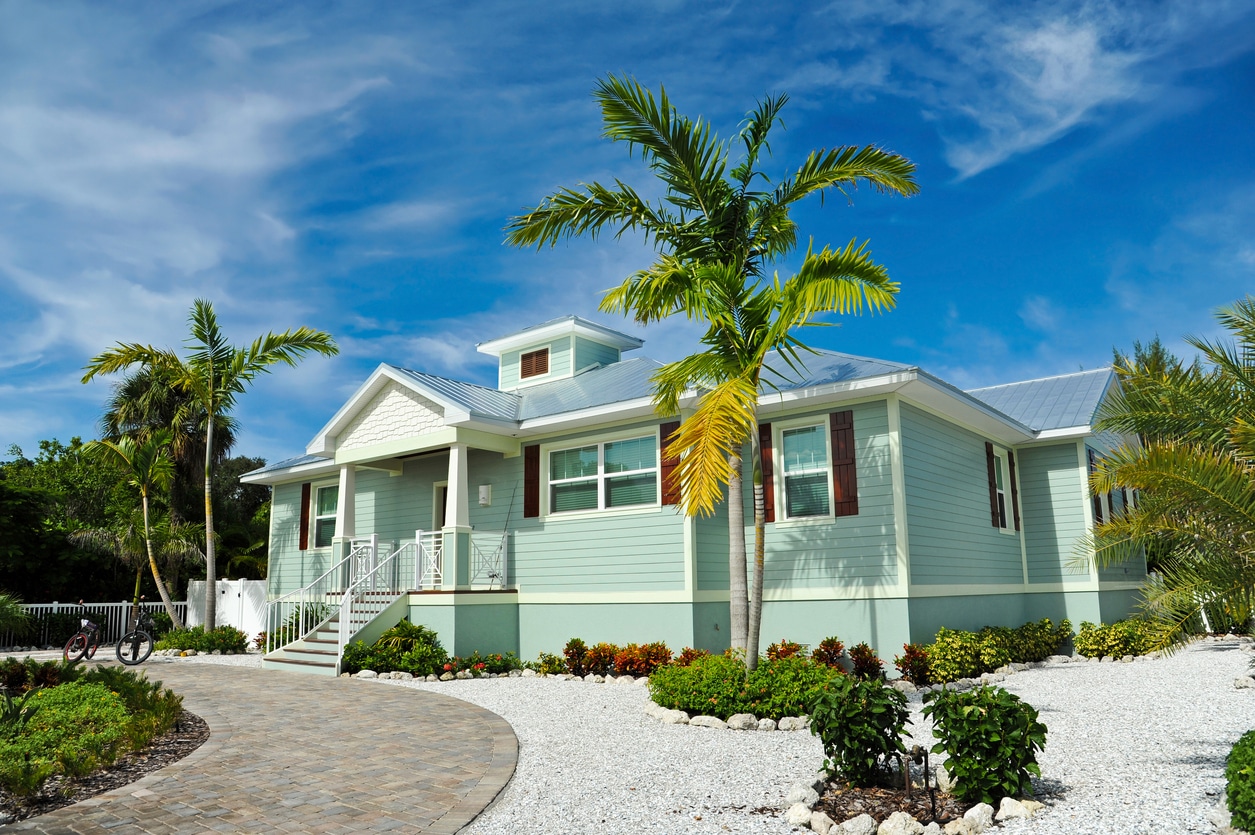Are you considering HVAC options for your beachfront home?
Choosing the right HVAC system is crucial for comfort and longevity. Beachfront homes present unique challenges due to their proximity to saltwater and fluctuating weather conditions.
In this article, we will explore the importance of selecting the right HVAC system, the specific challenges faced by beachfront properties, and the key features to look for when choosing an HVAC system.
HVAC Options: Importance of Choosing the Right System
Why is choosing the right HVAC options so important for your beachfront home?
The right HVAC options ensure year-round comfort, energy efficiency, and durability against the harsh coastal environment.
Beachfront homes face unique challenges that standard HVAC options might not handle well. Salt air can corrode components, leading to frequent repairs or replacements. High humidity levels can cause mold growth and reduce indoor air quality. Energy costs can skyrocket if the system isn’t efficient, especially during peak seasons.
HVAC options designed for beachfront properties can mitigate these issues. These systems are built to withstand salty air and high humidity. They offer advanced energy efficiency features to help keep your utility bills manageable. Plus, modern systems provide superior humidity control to keep your home comfortable and mold-free.
Key Benefits of the Right HVAC Options:
- Durability: Corrosion-resistant components last longer in salty environments.
- Energy Efficiency: Advanced systems reduce energy consumption and costs.
- Humidity Control: Effective moisture management prevents mold and improves comfort.
- Reliability: Less frequent repairs mean fewer interruptions to your comfort.
Investing in the right HVAC options can save you money in the long run and provide a more comfortable living environment. In the next sections, we’ll delve deeper into the specific challenges of beachfront homes and the features you should prioritize when selecting an HVAC system.
Challenges Faced by Beachfront Properties
What specific challenges do beachfront properties encounter that make HVAC options so essential? Living by the sea offers breathtaking views and a serene environment, but it also brings unique issues that can affect your home’s comfort and HVAC system performance.
- Corrosion from Salt Air
One of the most significant challenges is corrosion caused by salt air. Salt can rapidly corrode metal components of HVAC options, leading to frequent breakdowns and reduced lifespan. This is particularly problematic for external units exposed to the elements.
- High Humidity Levels
Beachfront homes often face high humidity, which can cause a variety of problems. Excess moisture in the air can lead to mold and mildew growth, which not only damages your property but also poses health risks. High humidity can also make your home feel warmer than it is, increasing the need for effective cooling.
- Fluctuating Temperatures
Coastal areas can experience sudden temperature changes. An HVAC system must be able to quickly adapt to these changes to maintain a comfortable indoor environment. This means efficient heating during cooler months and effective cooling during the warmer seasons.
- Sand and Debris
Sand and debris carried by the wind can clog filters and reduce the efficiency of your HVAC options. This can lead to more frequent maintenance and higher operational costs.
- Energy Consumption
Due to the constant battle against humidity and temperature fluctuations, beachfront homes often see higher energy consumption. With efficient HVAC options, energy bills can become manageable, especially during peak summer and winter months.
Mitigating These Challenges
Choosing HVAC options designed for beachfront conditions can help mitigate these challenges. Look for systems with corrosion-resistant materials, advanced humidity control features, and high energy efficiency ratings. Regular maintenance, such as cleaning filters and checking for corrosion, is also crucial to ensure your system runs smoothly.
In the following sections, we’ll explore the key features to look for in HVAC options that are ideal for beachfront homes.
Key Features to Look for in HVAC Systems
What features should you prioritize when selecting HVAC options for your beachfront home?
Ensuring your system is equipped to handle coastal challenges is essential for maintaining comfort and efficiency. Here are the key features to look for:
Corrosion Resistance
Salt air can wreak havoc on HVAC options, causing metal parts to rust and deteriorate quickly. Therefore, corrosion resistance is a top priority. Look for HVAC options with corrosion-resistant coatings and materials, such as stainless steel or specially coated aluminum. These materials can withstand the harsh coastal environment, reducing the need for frequent repairs and extending the lifespan of your system.
Energy Efficiency
Beachfront homes often face high energy costs due to the need for consistent temperature control. An energy-efficient HVAC system can significantly reduce your utility bills. Look for systems with a high Seasonal Energy Efficiency Ratio (SEER) rating.
Energy-efficient systems use advanced technologies like variable-speed motors and smart thermostats, which adjust the system’s output based on your home’s needs, ensuring optimal performance with minimal energy waste.
Humidity Control
Managing humidity is crucial for beachfront properties. High humidity levels can lead to mold growth and uncomfortable indoor conditions.
An HVAC system with humidity control features, such as a built-in dehumidifier, can help maintain a comfortable and healthy indoor environment. This feature ensures that excess moisture is removed from the air, preventing mold and maintaining air quality.
Durability and Build Quality
The HVAC system’s durability is vital, especially for homes near the sea. Choose systems known for their robust build quality and long-lasting components. Look for brands that offer extended warranties and have a reputation for reliability in coastal areas.
Smart Features
Modern HVAC options often come with smart features that enhance convenience and efficiency. Systems that integrate with smart home technology allow you to control your HVAC remotely via a smartphone app. Features like scheduling, energy usage monitoring, and automatic adjustments based on weather conditions can make your system more user-friendly and efficient.
Noise Levels
Living by the beach, you likely appreciate the tranquility and natural sounds. HVAC options with low noise levels ensure that the system operates quietly, allowing you to enjoy your serene environment without disruptive noise.
Best HVAC Systems for Savannah Beachfront Homes
What makes the best HVAC options for Savannah beachfront homes?
Savannah’s unique coastal climate requires systems that can handle high humidity, salt air, and fluctuating temperatures effectively. Here are some top considerations and recommended systems for this area.
Climate Considerations
- High Humidity: Savannah experiences high humidity levels, especially in the summer months. An HVAC system with superior humidity control is essential to keep indoor air comfortable and prevent mold growth.
- Salt Air: Proximity to the ocean means that salt air can corrode metal parts of your HVAC system. Systems with corrosion-resistant components are vital for durability.
- Temperature Fluctuations: Savannah’s weather can vary significantly between seasons. A reliable HVAC system must efficiently cool during the hot summer and provide adequate heating in the cooler months.
Recommended Systems
- Trane XV20i Variable Speed Air Conditioner
Overview: Known for its reliability and efficiency, the Trane XV20i is an excellent choice for Savannah’s climate.
Key Features:
- Variable Speed Technology: Adjusts speed to maintain consistent temperatures.
- Corrosion-Resistant Coils: Built to withstand salt air exposure.
- Humidity Control: Enhanced dehumidification capabilities.
- Carrier Infinity 26 Air Conditioner
Overview: Carrier’s Infinity 26 offers top-tier performance and innovative features, perfect for the demands of a beachfront home.
Key Features:
- Greenspeed Intelligence: Adapts cooling output to current conditions.
- Corrosion-Resistant Coils: Designed to resist the harsh coastal environment.
- Superior Humidity Control: Keeps indoor air comfortable.
- Lennox XC25 Air Conditioner
Overview: The Lennox XC25 is a high-efficiency system that excels in challenging environments like Savannah’s coastal areas.
Key Features:
- Variable Capacity: Adjusts cooling output for precise temperature control.
- Corrosion Protection: Coils and components are treated to resist salt air.
- Humidity Removal: Effective dehumidification for improved comfort.
Best HVAC Systems for Port Royal Beachfront Homes
What are the best HVAC systems for Port Royal beachfront homes?
Port Royal’s coastal environment poses unique challenges, including high humidity, salt air, and significant temperature variations. Here’s a look at the specific environmental factors and the top HVAC system choices for this region.
Specific Environmental Factors
- High Humidity: Similar to other coastal areas, Port Royal experiences high humidity, especially in the summer. Effective humidity control is crucial to maintain comfort and prevent mold growth.
- Salt Air: The corrosive nature of salt air can quickly damage HVAC components. Systems with robust corrosion-resistant features are necessary to ensure longevity.
- Temperature Swings: Port Royal’s climate includes hot, humid summers and mild winters. An HVAC system must efficiently handle both cooling and heating to maintain indoor comfort year-round.
Top System Choices
- Daikin DX20VC Air Conditioner
Overview: The Daikin DX20VC is known for its high efficiency and durability, making it ideal for coastal environments like Port Royal.
Key Features:
- Variable Speed Compressor: Provides precise temperature control and energy savings.
- Corrosion-Resistant Components: Designed to withstand salt air exposure.
- Humidity Control: Advanced dehumidification capabilities for a comfortable indoor environment.
- Rheem Prestige Series
Overview: Rheem’s Prestige Series offers reliable performance and affordability, making it a popular choice for homeowners.
Key Features:
- Variable Speed Technology: Adjusts to maintain consistent indoor temperatures.
- Enhanced Humidity Control: Effectively removes excess moisture from the air.
- Corrosion Protection: Components are treated to resist salt air damage.
- Mitsubishi Electric Zoned Comfort Solutions
Overview: Mitsubishi Electric offers advanced ductless systems that are perfect for homes requiring flexible solutions.
Key Features:
- Zoned Comfort: Allows precise temperature control in different areas of your home.
- Corrosion-Resistant Coatings: Protects against salt air.
- Energy Efficiency: High SEER ratings ensure low energy consumption.
Best HVAC Options for Hardeeville Beachfront Homes
What are the best HVAC systems for Hardeeville beachfront homes?
Hardeeville’s unique coastal climate demands HVAC systems that can handle high humidity, salt air, and varied temperatures. Here’s an overview of the unique weather patterns and optimal HVAC solutions for this area.
Unique Weather Patterns
- High Humidity: Hardeeville experiences high humidity levels throughout the year, particularly during the summer. Effective humidity control is essential to maintain comfort and prevent mold growth.
- Salt Air: The coastal environment means exposure to salt air, which can corrode HVAC components. Systems with robust corrosion-resistant features are necessary for longevity.
- Temperature Variability: Hardeeville’s weather can range from hot and humid summers to cooler winters. HVAC options must provide efficient cooling and heating to ensure year-round comfort.
Optimal HVAC Solutions
- Goodman GSXC18 Air Conditioner
Overview: The Goodman GSXC18 is known for its durability and efficiency, making it a good choice for coastal environments like Hardeeville.
Key Features:
- Two-Stage Compressor: Provides energy-efficient cooling.
- Coil Guard: Protects against salt air corrosion.
- Humidity Control: Advanced dehumidification capabilities.
- American Standard Platinum 20 Air Conditioner
Overview: American Standard’s Platinum 20 offers high efficiency and advanced features, ideal for Hardeeville’s climate.
Key Features:
- Variable Speed Compressor: Ensures precise temperature control and energy savings.
- Corrosion-Resistant Components: Designed to withstand salt air.
- Humidity Control: Superior dehumidification for a comfortable indoor environment.
- Fujitsu Halcyon Mini-Split System
Overview: Fujitsu’s Halcyon Mini-Split system is perfect for homes requiring flexible solutions without extensive ductwork.
Key Features:
- Zoned Comfort: Allows precise temperature control in different areas of your home.
- Corrosion-Resistant Coatings: Protects against salt air damage.
- Energy Efficiency: High SEER ratings ensure low energy consumption.
Energy Efficiency: Saving Costs on Your Beachfront Property
How can you maximize energy efficiency and save costs on your beachfront property?
Ensuring your HVAC options operate efficiently is essential for keeping energy bills manageable while maintaining a comfortable home environment. Here are some tips and benefits of energy-efficient systems.
Tips for Maximizing Efficiency
- Regular Maintenance: Schedule regular maintenance for your HVAC system. Clean or replace filters monthly, and have a professional inspect the system annually. This ensures all components are working efficiently and prevents minor issues from becoming major problems.
- Programmable Thermostats: Invest in a programmable or smart thermostat. These devices allow you to set specific temperatures for different times of the day, ensuring your system isn’t overworking when you’re not home. Some smart thermostats even learn your schedule and adjust settings automatically.
- Proper Insulation: Ensure your home is well-insulated. Proper insulation keeps cool air inside during the summer and warm air inside during the winter. Check for leaks around windows and doors and seal them to prevent energy loss.
- Energy-Efficient Windows: Install energy-efficient windows that reduce heat transfer. These windows help keep your home’s temperature stable, reducing the workload on your HVAC system.
- Use Ceiling Fans: Ceiling fans can help circulate air, making your home feel cooler in the summer and warmer in the winter. This allows you to set your thermostat a few degrees higher in the summer and lower in the winter, saving energy.
- Shade and Ventilation: Use shades or blinds to block direct sunlight during the hottest parts of the day. Additionally, ensure your home has proper ventilation to reduce humidity levels, which can make the air feel warmer.
Benefits of Energy-Efficient Systems
- Lower Energy Bills: Energy-efficient HVAC systems use less electricity, resulting in lower energy bills. Over time, the savings can offset the initial investment in a high-efficiency system.
- Improved Comfort: Efficient systems provide more consistent temperatures and better humidity control, enhancing overall comfort in your home.
- Reduced Environmental Impact: Using less energy reduces your carbon footprint. Energy-efficient systems help conserve natural resources and decrease greenhouse gas emissions.
- Increased Home Value: Homes with energy-efficient systems and appliances are more attractive to buyers. If you decide to sell your home, having an efficient HVAC system can increase its market value.
- Longer Lifespan: Efficient systems often have longer lifespans because they do not have to work as hard to maintain desired temperatures. This means fewer repairs and replacements over time.
Humidity Control: Essential for Beachfront Comfort
Why is humidity control essential for beachfront comfort?
Managing humidity levels is crucial for maintaining a comfortable and healthy living environment in beachfront homes. High humidity can lead to various issues, from mold growth to increased discomfort. Here’s why humidity control matters and how to achieve it.
Importance of Managing Humidity
- Prevents Mold and Mildew: High humidity creates a breeding ground for mold and mildew, which can damage your property and pose health risks. Mold spores can cause respiratory issues, allergies, and other health problems. Effective humidity control helps prevent mold growth, protecting your home and health.
- Enhances Comfort: Humidity levels significantly affect how comfortable you feel indoors. High humidity can make the air feel warmer, causing discomfort and requiring your HVAC system to work harder. Proper humidity control ensures a more pleasant indoor environment by maintaining balanced moisture levels.
- Protects Your Home: Excess moisture can damage wooden structures, furniture, and other belongings. By controlling humidity, you protect your home’s structural integrity and preserve your possessions.
- Improves Indoor Air Quality: High humidity can worsen indoor air quality by promoting the growth of dust mites and other allergens. Managing humidity levels helps maintain cleaner, healthier air inside your home.
Best Practices for Humidity Control
- Use a Dehumidifier: Invest in a dehumidifier to remove excess moisture from the air. Portable dehumidifiers can be used in specific rooms, while whole-home dehumidifiers can be integrated into your HVAC system for comprehensive humidity control.
- Ventilation: Ensure your home is well-ventilated. Use exhaust fans in bathrooms and kitchens to expel humid air. Open windows and doors when the outdoor humidity is low to allow fresh air circulation.
- HVAC System with Humidity Control: Choose an HVAC system with built-in humidity control features. Systems with variable speed motors and advanced dehumidification technology can effectively manage indoor moisture levels.
- Maintain Your HVAC System: Regular maintenance of your HVAC system is essential for effective humidity control. Clean or replace filters regularly and have your system inspected by a professional to ensure it’s functioning correctly.
- Seal Leaks: Seal any leaks around windows, doors, and other openings to prevent humid air from entering your home. Proper insulation also helps maintain consistent indoor humidity levels.
- Monitor Indoor Humidity: Use a hygrometer to monitor indoor humidity levels. Aim to keep humidity between 30% and 50% for optimal comfort and health. Adjust your dehumidifier or HVAC settings as needed to maintain this range.

FAQs about HVAC Options
- What is the best HVAC system for beachfront homes?
The best HVAC systems for beachfront homes are those with corrosion-resistant materials, advanced humidity control, and high energy efficiency. Brands like Trane, Carrier, and Lennox are top choices.
- How often should I maintain my HVAC system?
Regular maintenance should be performed at least twice a year. This includes cleaning or replacing filters monthly and scheduling professional inspections annually.
- Why is humidity control important for beachfront homes?
High humidity can lead to mold growth, structural damage, and discomfort. Proper humidity control ensures a healthier and more comfortable living environment.
- How can I reduce my energy bills with an HVAC system?
Use a programmable thermostat, ensure proper insulation, and perform regular maintenance. Investing in an energy-efficient system with a high SEER rating also helps reduce energy consumption.
- What are the signs my HVAC system needs servicing?
Signs include unusual noises, inconsistent temperatures, increased energy bills, and reduced airflow. Regular maintenance can help identify and fix these issues early.!











